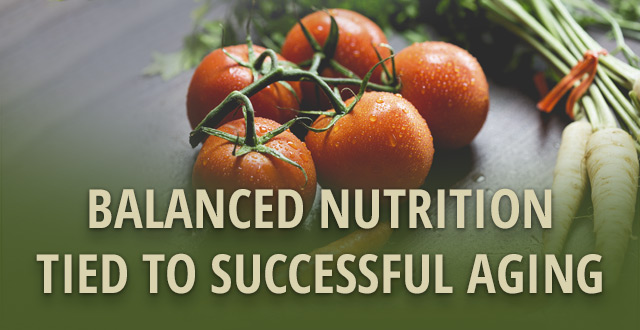Good nutrition for older adults is especially important. As we age, our bodies process food differently. This in turn can affect our dietary needs, appetite and even how food tastes. Although there may be a natural decline in one’s appetite during aging, maintaining a well-balanced diet is key to successful aging and overall health and wellness.
Healthy eating has been proven to reduce the effects of osteoporosis, high blood pressure, heart disease, gastrointestinal ailments and chronic malnutrition.
Below are few tips for kicking up your diet:
Enhance dishes with herbs and spices
According to the National Institute of Health, seniors may experience a decline in taste or smell causing them to begin adding too much sugar or salt to food to improve the flavor. This in turn can impact their health long term.
Experts recommend first seeking the advice of a doctor to be sure the decline is not connected to an underlying issue such as an upper respiratory infection. Then, consider using herbs and spices to enhance the flavor of food without adding extra calories or sodium
Basil, for example, is perfect for kicking up Italian dishes, particularly those with tomato-based sauces, while tarragon is ideal for chicken and shellfish.
Eat Clean
When was the last time you checked out the list of ingredients in your favorite food? From preservatives to artificial sweeteners, it can be quite a shock to discover what’s really in our food these days. Nutritionists recommend sticking to the perimeter of the grocery store. That’s where you’ll find the healthiest items for clean eating. Dairy, meats, fresh fruits and vegetables, etc., tend to be found in these areas while the inside aisles usually have highly processed food.
Enjoy a meal with Friends
Dining alone for prolonged periods can affect one’s appetite. Research shows it can be both mentally and physically unhealthy. In fact, just the thought of having to dine alone is enough to decrease one’s appetite.
Nutritionists suggest seniors share a meal with family, friends or neighbors whenever possible. Studied have found that enjoying a meal with at least one other person increases the amount of food eaten by 35 percent!
Plan ahead
Grocery shopping, cooking and cleaning up after a meal may deter older adults from maintaining a well-balanced diet. Also, having to scale down recipes to make a meal for one or two people may be too daunting and so a more convenient—often less healthy—dinner alternative is selected.
To overcome this challenge, it is suggested that when possible, prepare larger meals and freeze the leftovers. This offers a convenient solution for those looking for nutritious options without having to cook each day. Dieticians advise against store-bought frozen dinners, which are often highly processed and high in sodium, fat and sugar.
A meal delivery service is also a great alternative.
Be adventurous
Eating the same foods over a prolonged period of time can become routine, causing us to indulge in unhealthy food choices. To avoid the monotony, try incorporating fruits and vegetables you would typically skip over at the grocery store. Spring offers the perfect time to taste-test antioxidant rich, immune-boosting food options such as pomegranates, quinoa, kefir and lentils.
Cooking magazines, international grocers and even the internet can help guide your search to discover new healthy foods.
Eating well doesn’t have to be complicated! By following a few simple steps, you can reap all the benefits that come from a balanced diet.

